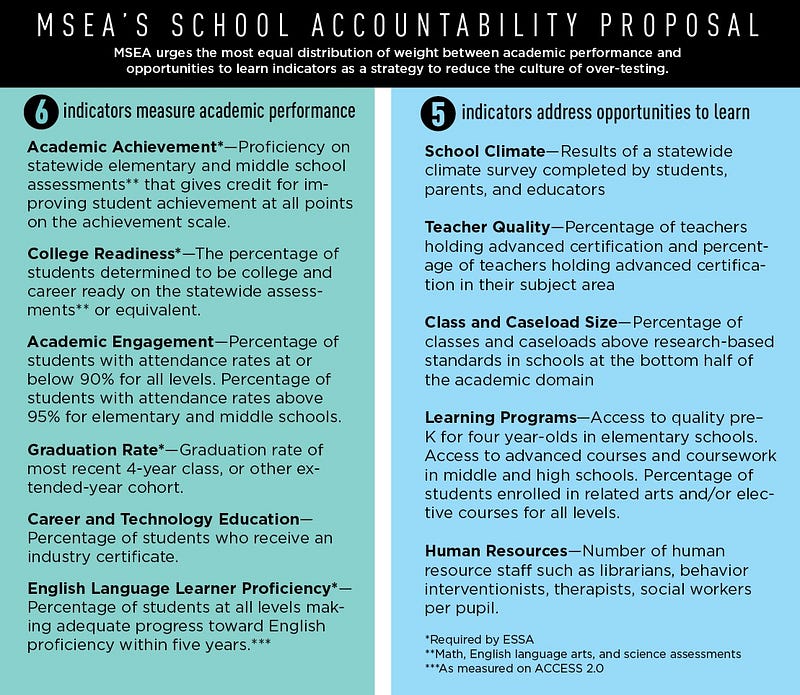Educators Lead on ESSA
MSEA Pitches State Board of Ed on ESSA Proposal
When Congress passed the Every Student Succeeds Act (ESSA) last December — finally moving on after 15 years under the failed, testing-obsessed No Child Left Behind — one of its most important requirements was to include stakeholder input in the development of new school accountability systems. Not only were the days of Adequate Yearly Progress (AYP) going to be over, but educators in each state would help determine a new, more effective and nuanced system to take its place.
Once ESSA passed, MSEA quickly pulled together a group of educators and staff from around the state to wade through the complicated law and develop a proposal for ESSA implementation.
Unfortunately, the state has presented few chances for educator input, and we’ve needed to fight to make sure that educators have the seat at the table promised in ESSA. Finally, last month MSEA got the opportunity to present our proposal before the State Board — resulting in a nearly four hour discussion about Maryland’s opportunity to reduce standardized testing and close resource equity gaps in our schools.
“The state can’t just give lip service to listening to educators and expect ESSA to work for students. We have a rare opportunity to reshape what we value and incentivize in our schools. Educators have to be involved and have to be at the table for this to succeed.” — Cheryl Bost, MSEA Vice President
The educators’ plan for school accountability
One of the core parts of each state’s ESSA implementation plan is its school accountability system. In other words, how in Maryland will we measure school success, identify low-performing schools, and then provide the resources and changes necessary to improve those schools?
MSEA’s workgroup-developed plan has three major goals: reduce the importance of state standardized tests, close equity gaps in important school services without resorting to privatization, and ensure that educators have a seat at the table for critical policy decisions.
Under ESSA, states must measure schools based on a range of metrics, some of which are typical student performance outputs like test scores and graduation rates, but also include new indicators that track whether the school provides important learning and support services to help close equity gaps. MSEA’s range of proposed indicators are divided in the accountability system between traditional academic performance data points and more opportunity-based metrics. This will incentivize schools to focus less on testing and more on supporting educators and students.
“There are a lot of opportunities within ESSA for educators and policymakers to come together at the table. It’s something that is absolutely important if you want to have meaningful change in the classroom.” — Sheena Washington, Special Educator in Prince George’s County and MSEA ESSA Workgroup Member
For schools that are identified as low-performing under this system, MSEA has proposed a number of safeguards to prevent the corporate takeover of public schools. We have recommended that the state require schools and districts to form stakeholder advisory committees — including school-level educators — to drive the direction of support and improvement plans.
After the pitch — MSEA’s next steps
MSEA’s conversation with the State Board is just the beginning. Due in large part to our advocacy, MSDE is pushing back their state plan submission timeline to July 2017, giving educators more time to reach out to policymakers with ideas to get ESSA right for Maryland students. For the next nine months, MSEA will be organizing educators in communities like yours to speak up for what your school needs.


